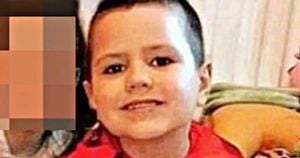The situation in Haiti continues to spiral downward as recent gang violence takes its toll on the nation's capital, Port-au-Prince. The city, already grappling with systemic instability, faces unprecedented security challenges as armed gangs reportedly control 80% of its territory. This alarming figure reflects the consequences of long-standing political turmoil, exacerbated by violent confrontations between rival gangs and the Haitian police.
One of the latest incidents occurred on December 10, 2024, when armed gang members executed nine people during an attack on the town of Petite-Riviere, located in the central region of Haiti. According to Bertide Horace, a local community leader, the attackers targeted the town as retribution against residents who aided police efforts to regain control of their headquarters. Among the casualties were two adolescents, and the gunmen also set homes ablaze and kidnapped multiple individuals, deepening the residents' fear.
Such brutal assaults have become increasingly common, as gangs initiate random acts of violence, including kidnappings and retaliatory attacks against perceived enemies. Over the weekend preceding this incident, nearly 200 additional fatalities were reported as gang violence surged to alarming heights. A gang leader, fixated on voodoo beliefs, ordered this massacre, targeting individuals he deemed responsible for his child's illness. The United Nations underlined the gravity of this violence, reporting approximately 5,000 deaths across the country this year alone.
This chaotic backdrop serves as the immediate setting for the operation of humanitarian organizations like Doctors Without Borders (MSF). Just weeks prior, MSF announced it would resume limited activities within the capital after temporarily halting its operations due to threats against its staff following multiple violent confrontations. The organization confirmed on December 11, 2024, its decision to reopen several medical facilities, indicative of their commitment to addressing the heightened medical needs of the population.
While MSF recognized some progress after engaging with local stakeholders to guarantee the safety of its teams, they emphasized the significant risks still present. "Despite the commitments made by the authorities, the risks remain high, and our ability to continue our work in Haiti is uncertain as we move ahead," stated Jean-Marc Biquet, MSF's head of mission. This unease reflects the dire healthcare situation facing the Haitian populace, exposed to countless forms of violence and exacerbated by the lack of available medical services.
The MSF facilities now reopening include three hospitals and one clinic located across the greater Port-au-Prince metropolitan area. Interestingly, the organization has decided to suspend patient transport services, citing the high-risk environment especially affecting ambulance operations. This decision highlights the precarious balance between providing necessary healthcare and ensuring the safety of patients and medical staff alike.
For many residents of Port-au-Prince, the humanitarian crisis subsides during the day only to be reignited under the cover of night as gangs conduct their operations. International responses to this growing chaos have included the deployment of security forces; recently, Kenya provided assistance aimed at aiding the overstretched local law enforcement agencies. Yet, the effectiveness of such support has been critically challenged by overwhelming gang dominance.
Many Haitians remain skeptical about whether external forces can truly stabilize the country. Government action has not yielded significant changes, and public trust continues to wane. Community leaders like Bertide Horace have voiced their outrage and despair as innocent lives are lost. "The police cannot act without the backing of the government, and they are outgunned. The people pay the price," Horace lamented following the latest spate of violence.
Haiti's vulnerability is compounded by centuries of political instability and social strife, stretching back to the catastrophic earthquake of 2010. International involvement has often been marked by missteps, with various attempts to assist beset by complications. This history of intervention frequently raises more questions than answers, leading many locals to feel abandoned.
Globally, humanitarian organizations are working diligently to address the urgent needs of those afflicted by gang violence. But as the situation remains dire, much is left to be done. The question of how to restore order amid chaos may linger. The response to this humanitarian crisis must include open dialogues respecting local voices and acknowledge the need for sustainable, locally-driven solutions.
Meanwhile, the United States has announced stepped-up restrictions on flights to Haiti, reinforcing the precarious nature of movement within and around the capital. According to the Federal Aviation Administration, all flights operating below 10,000 feet over Port-au-Prince will be subject to new regulations, reflecting the increasing dangers from above as ground operations face challenges below.
Haiti's crisis is not simply one of gang violence; it’s emblematic of broader societal struggles and the urgent need for comprehensive engagement, humanitarian action, and respect for human rights. Only through coordinated efforts can hope be rekindled for the citizens enduring the daily realities of life under siege.



